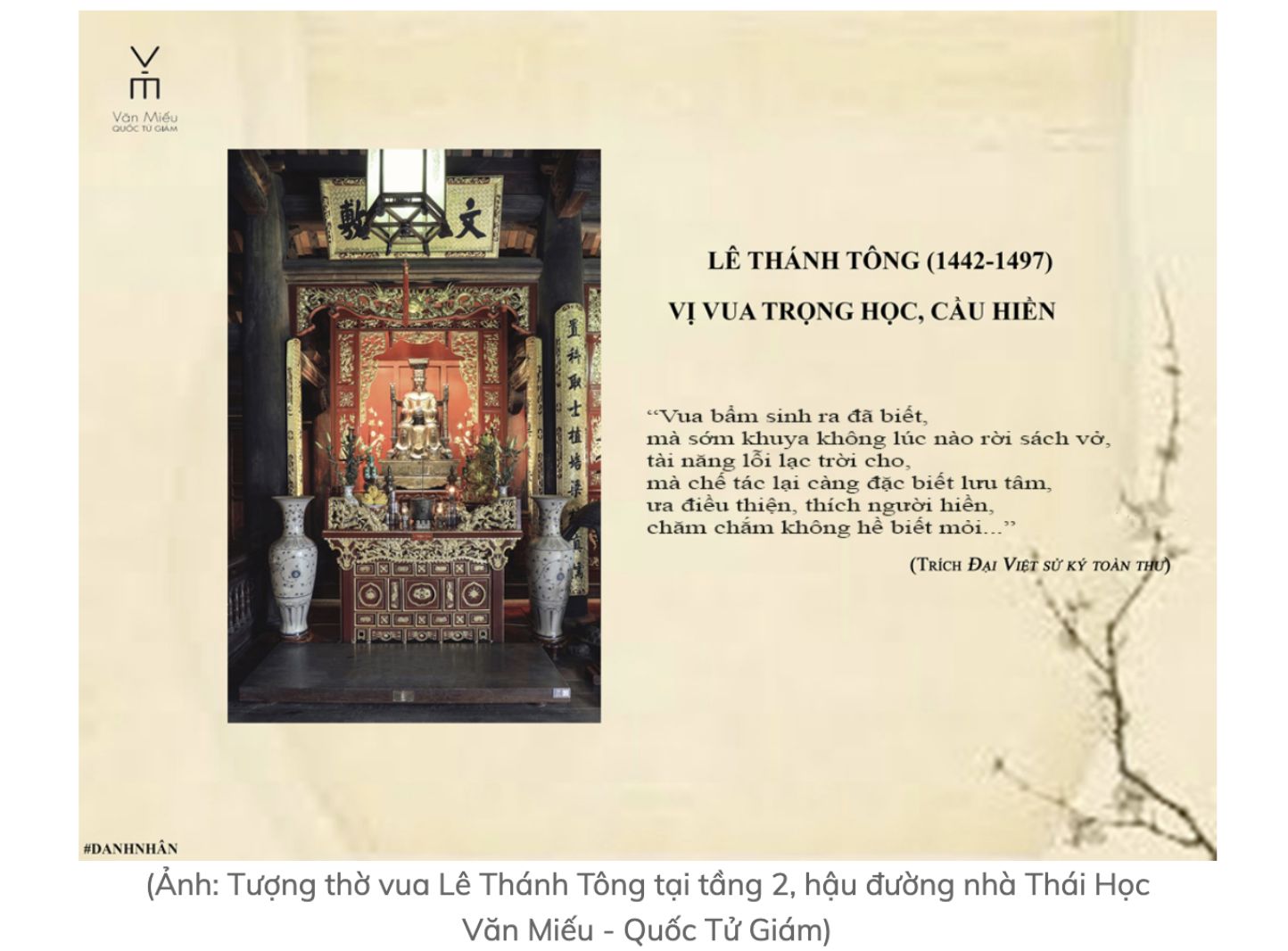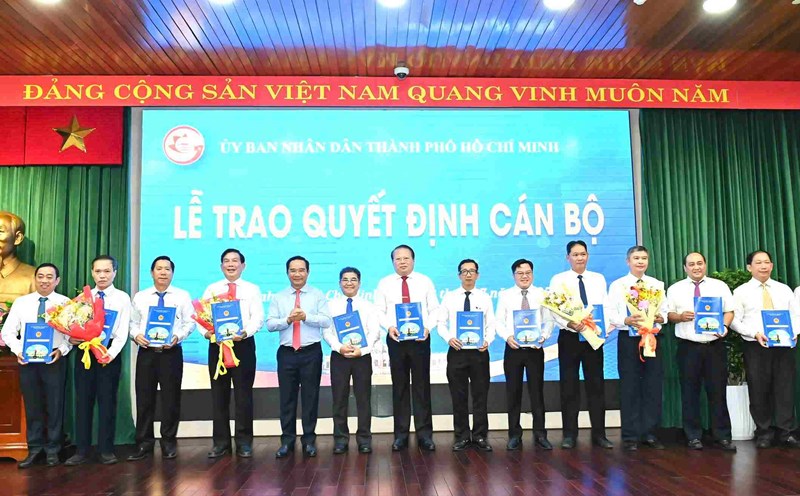The philosophical and cultural foundation of the "people's war"
In the minds of the Vietnamese people, the desire for unified, peaceful and prosperous country has eaten deep into the roots of culture. The Confucianism "people's economy" (the country that saves lives) ideology, when it was introduced to Vietnam, was localized and closely combined with patriotism, with the awareness of national self-reliance. It is not only the responsibility of the military kings but also the ideal of life, the "child" of patriotic scholars and intellectuals. The history of the nation has witnessed many reformers, talented people carrying worries about the fate of the country, day and night thinking about finding ways to "report to the people", "report to the country", "report to the army".
The foundation of every rearrangement of the mountain range always begins with the establishment of a core value system and a strategic vision for the country. That is the answer to the basic questions: Where will the country go? Where is the strength of the country? How to make the public authority operate effectively, truly "for the people"? These questions, whether in the 15th century under the reign of Le Thanh Tong or in the 19th century under the reign of Minh Mang, and even in this 21st century, have not changed in nature. They only vary in context and implementation methods. It is the steadfastness in core values such as independence, self-reliance, taking the people as the root, along with the ability to adapt flexibly before the times, that has created a strong vitality for reforms in Vietnamese history.
King Le Thanh Tong and the comprehensive institutional revolution
After the victory of the resistance war against the Ming army, the Dak Viet nation faced the urgent need to strengthen the central government, stabilize society and recover the economy. King Le Thanh Tong (1460 - 1497) was not only an enlightened king but also a great reformator, a "chief architect" of the largest-scale "rearrangement of the mountain goose" in the history of the Vietnamese feudal system.
Before the reign of King Le Thanh Tong, the administrative apparatus still had many bulky and cumbersome features, with power concentrated on the ministries and civil servants. Recognizing the risk of decentralization and abuse of power, Le Thanh Tong has carried out a thorough reform. He abolished intermediary positions with great power such as Ta, Huu Tuong Quoc, Dai Dai Tong quan. Instead, he established the Ministry of Public Security (six ministries: Lai, Ho, Le, Binh, Hinh, Cong) directly under the direction of the king. To supervise the Ministry, he established the Department. To supervise all the officials, he set up the Emperor's historical site. This is a sophisticatedly designed State model with a very modern "decentralization and control" mechanism, to prevent specialization and corruption. In return, not only does it have the right but it is also closely monitored, creating a cleaner and more efficient apparatus.
One of the greatest heritages of King Le Thanh Tong is the systematization of laws and the re-definition of administrative boundaries. He painted a national map, known as the Hong Duc Map, clearly defining each administrative unit from the central to local levels. He divided the country into 13 superstitious religions (replacing the 5 old religions), each religion has three companies (corporation, Thua ty, Hien ty) in charge of military, civil and judicial affairs, forming a mutual control system, reporting directly to the court. In particular, the promulgation of the Hong Duc Code (Quoc Hoang Lam Thuong) is a top legislative achievement. This is not only a criminal law but also a comprehensive law, including many progressive provisions on the protection of private property rights, the rights of women, and clearly stipulating the responsibilities of non-commissioned officers. When a local official harassed the people, people could rely on the provisions of the law to sue Hien Ty. This has created a society of order and discipline, where the law is upheld.
The reform of King Le Thanh Tong shows that to "arrange the mountain goose", we must first start with institutional reform. A streamlined apparatus, a restorative legal system and an effective power control mechanism are three pillars for a strong national governance. Lessons on promoting talent through exams, promoting the law and building an honest apparatus are still the guiding principles for Vietnam's administrative reform today.

King Minh Mang and efforts to unify the national administration
Nearly four centuries after King Le Thanh Tong, the country once again faced the need to be "arranged". After the country's reunification, the Nguyen Dynasty faced a vast territory stretching from the North to the South, with many differences in culture, practices and old administrative structures. King Minh Mang (1820 - 1840) emerged as a determined reformist with the central goal of standardizing and unifying the national administration.
Before the Minh Mang period, although the country was unified in name, in reality, there were still two "decessaries" in the North (Northern Thanh Tong Thang) and the South (Gia Dinh Thanh Tong Thang) with great power. This creates the risk of "being a champion", weakening the power of the central court. Minh Mang has seen this danger. With a bold decision and full of political calculations, in 1831 - 1832, he decided to dissolve Bac Thanh and Gia Dinh Thanh, dividing the country into 30 provinces and 1 government (Thua Thien).
Each province has a system of portfolios (governor, Government Secretary, Chief Prosecutor, and Director) directly appointed by the court, paid salaries and rotated. This story demonstrates an essential governance principle: The unity and smoothness of administrative orders from the central to local levels are a prerequisite for national stability.
To fight local hardship, Desplaces and corruption, King Minh Mang has thoroughly implemented the "resistance regime". Quan is not allowed to work in his hometown, cannot marry a local woman in his household, and cannot send relatives to work in his apparatus. At the same time, he set a clear salary regime (salary and benefits) to keep the officials safe and clean. Despite certain limitations, "hypertensions" is a smart human resources policy, directly at the root of the problem of "one person is an official, all are asked for", a burning problem of all times.
The reform of King Minh Mang emphasizes the importance of systemalism, professionalism and discipline in the administration. The standardization of administrative units, titles, working processes and treatment regimes has created a system of rules and regulations, operating according to the law instead of according to personal will. Lessons on building a transparent and professional civil service and preventing conflicts of interest are still hot in the context of building a socialist rule-of-law state today.
"Restoring mountain goose" in the new context
The heritages of a centralized, disciplined state have been broken and distorted for more than 80 years of French domination. However, the aspiration for an independent, unified and disciplined mountain range was the driving force that urged the entire nation to stand up in the two resistance wars. And perhaps, the greatest and closest 'arrangement of the mountain goose' to us is the Doi Moi Conference in 1986. It is a revolution in thinking, breaking the centralized, delegated and subsidized planning mechanism to create a new institution, paving the way for the socio-economic-oriented market economy to develop.
Vietnam and today's world are far different from the time of King Le Thanh Tong or Minh Mang. globalization, digital economy, climate change and non-traditional security challenges pose extremely complex national governance problems. The "rearrangement of the mountain range" of Vietnam in the new era is no longer simply a matter of redrawing the administrative map or changing the name of the position, but focuses on more profound and core areas.
The focus of this work is on reforming economic institutions, taking the goal of building a state to create development. If the kings of the past "arranged" to consolidate central power and stabilize society, today, we "arrange" to maximize production, unlock all resources for development, and improve national competitiveness. The heritage of our ancestors provides us with the following constant principles:
- Vision and political determination: Both King Le Thanh Tong and Minh Mang were successful because they had a clear vision of a mighty, unified country and had an iron determination to pursue that vision, despite the resistance of conservative forces. Today, the vision of a strong and prosperous Vietnam has been clearly defined by our Party in the Congress documents, especially the Resolution of the 13th Congress with specific goals until 2030 (a developing country, with modern industry, high average income) and vision to 2045 (to become a developed country, high income). This vision requires a similar political determination, a consensus of the entire political system and the entire people to overcome the "barriers" of the old mechanism and group interests.
- Respect for the law: The spirit of the Hong Duc Code must be demonstrated in building a complete, transparent, fair legal system, protecting property rights and free business rights of people and businesses. The policy of building a socialist rule of law state that our Party and State are determined to implement is the inheritance and development at a new height of this ideology. A strong rule of law state is the foundation for attracting high-quality investment, promoting innovation and ensuring social justice.
- Streamlined, efficient and honest apparatus: Lessons on streamlining the apparatus of Le Thanh Tong and professionalizing the civil service of Minh Mang are still in their true value. The current administrative reform must aim to build a modern civil service, based on job positions, assessment based on work performance (KPIs) and having a worthy treatment to attract and retain talent. In particular, the fight against corruption and negativity initiated and led by our Party, often likened to a "fire-and-escaping" operation, is being vigorously implemented, with no forbidden areas and no exceptions. This is the inheritance and elevation of the "resurgence regime" and the operation of the Government of the Landscape Institute, aiming to build a truly clean and strong apparatus, a truly honest Government, creating, acting, and serving the people.
Under the wise leadership of the Party and the strong and dynamic management of the Government, we are creatively applying those lessons, combined with modern strategic thinking and timelessness, to create superior development institutions. The ultimate goal is to build an autonomous, dynamic and efficient economy, realizing the aspiration for a strong, prosperous, happy country, firmly moving towards socialism. That is the true meaning of "rearranging the mountain goose" that our Party is carrying out to enter a new era of national development.











